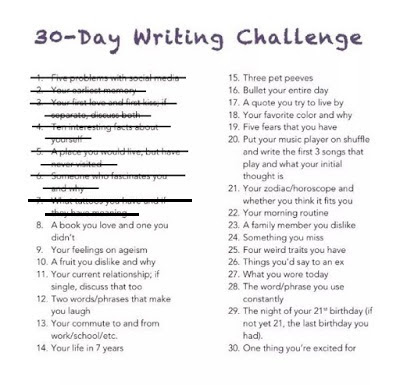Day 8: A book you love and one you didn't
It is actually very hard for me to think of a book I didn't like, because I generally like all the books I have read. That's why I read them. Plus, if I don't like a book I'm reading, I will just stop reading it. Right where I am.
I guess I could talk about a book that I read (an entire series, in fact) and continued reading even though I would realize later the many reasons why it was terrible. When I was in eighth grade (circa 2007-08) Stephenie Meyer had just published Twilight. It was quite the commercial success with girls my age, all doe-eyed and swooning over Edward Cullen. (This was before Robert Pattinson had been cast in the role, ruining the appeal of Cedric Diggory forever.) I remember borrowing the book from a friend; its paperback cover had been torn up and bent back by many of our classmates as it circulated through the hands of most of the pubescent, love-struck teenage girls in our grade.
I read through it ravenously, consumed in the life of Bella Swan and her grand misfortune of falling in love with a centuries-old vampire, pale and dreamy as they come. I was 13. I don't think much else could have been expected of me with a book so powerful in my young, impressionable hands. I read New Moon and Eclipse next, and finished them both just in time to force myself to wait patiently for the release of Breaking Dawn.
It really wasn't until the movies came out years later and I was a little older, that I realized many of the problems with the storyline. To keep it brief, I will make a list of the most obvious issues with Bella alone: codependency, a major identity crisis, and dangerously low self-esteem. I think it took the media doing critical thinking for me at a time when I was just following the trend of all my middle school classmates, to make me realize that perhaps there was something about the message conveyed by this story that was terribly problematic. But that doesn't mean that reading about the birth of Renesmee wasn't wonderfully bizarre and captivating at the time. (Until Jacob imprinted on her, then it got weird again and totally ruined Taylor Lautner for me, as well.)
As for a book I loved? I'm going to avoid being totally predictable and extra long-winded here, and not go with Harry Potter. Everybody knows I love Harry Potter, and I could go on and on and on about it forever. So instead, I will go with a classic of a little older age: To Kill A Mockingbird.
I remember reading that novel over spring break during sophomore year of high school. My classmates were all hacked off that our English teacher gave us any assigned reading homework over the break, but I was actually pretty excited about it. I was 16 and it wasn't like I had much else to do for a week. I'm a nerd, remember?
Anyway, I read the whole thing in just a few days. I can recall lying on the bed at my aunt's house, finishing up the last few chapters where Atticus goes to trial and presents his case that Bob Ewell was the one who actually raped his daughter, and that he was hiding beyond his own bigotry in accusing the innocent black man, Tom Robinson. I was totally engrossed in the literary genius that tied all the loose ends together. I can remember that I began reading aloud, like I always do when I get really sucked into a book, and the energy has nowhere else to go besides out of my mouth. My blood was boiling at the blatant racism of the characters and I got goosebumps from the empowering way Atticus didn't stand for any of it. I was enthralled by the valor and altruism of fictional characters, the same way I've been many times before.
When we returned to school on Monday, I was the only one who had finished the book over break. I was so in love with the work of Harper Lee that I didn't care one bit about being the only one in on the secret. In fact, I think I liked it more that nobody else knew how it ended. They had no idea what they were missing.
A person's favorite things say a lot about them. Especially those things like literature or music. I think it resonates with their experiences in life as well as the values they hold in regard to powerful cultural ideas. I once read an article online about how the Potter generation has been shown to be more understanding of differences, accepting of marginalized groups, and more likely to question authority rather than blindly accept it. I think that's totally true; and furthermore, it's representative of many other things to which I find myself drawn. Harry Potter and To Kill A Mockingbird are only two of the many powerful books that I love proudly and fiercely. They're some of my all-time favorites, and I like to think they're pretty good choices.

No comments:
Post a Comment